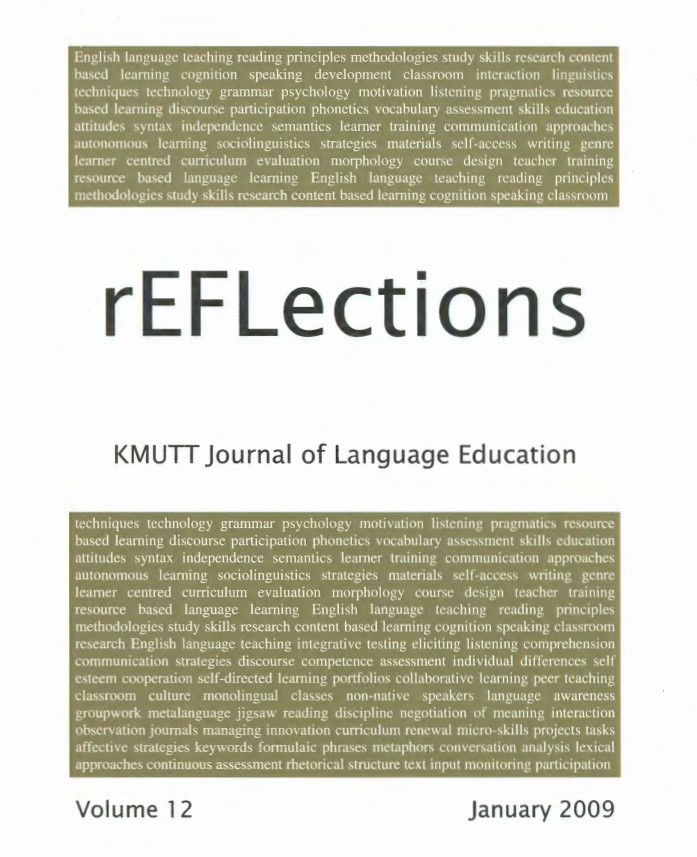Advantages and Disadvantages of Using Diaries and Semi-Structured Interviews in a Case Study Examining a Thai ESL Student’s Perceptions on British Culture
Main Article Content
Abstract
The paper addresses some advantages and disadvantages of using a diary and a semi-structured interview in a case study which examined the perceptions of British culture of a Thai ESL learner called ‘Shirley’. Shirley’s diary entries enabled the researcher to discover her existing cultural perceptions and see gradual changes in her attitudes towards learning about the target language culture over time. The semi-structured interview offered the researcher insights and information on certain issues, which might be far beyond what her diary entries could provide. Some drawbacks to diary data were noted: redundancy, irrelevance and inconsistency in the subject’s writing; drawbacks to the interview data were researcher bias, the ‘real-time’ nature of the interview and the time-consuming nature of processing and analysing the interview data. Nevertheless, the advantages of the research methods employed appear to outweigh their inherent limitations. This paper could potentially benefit researchers in the field of applied linguistics and TESOL who plan to use diary studies and semi-structured interviews as research tools.


